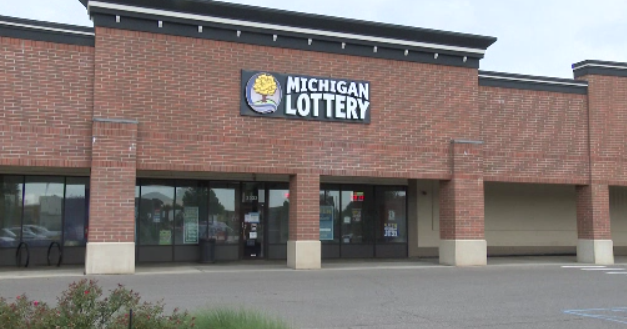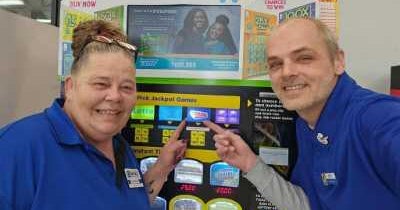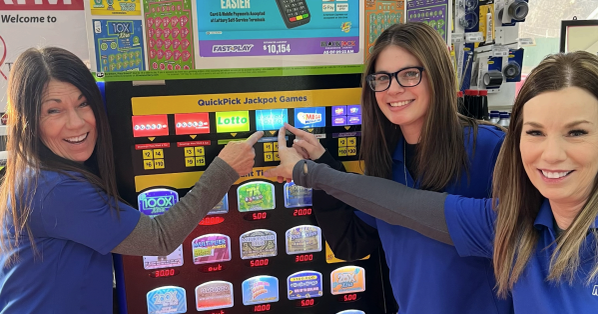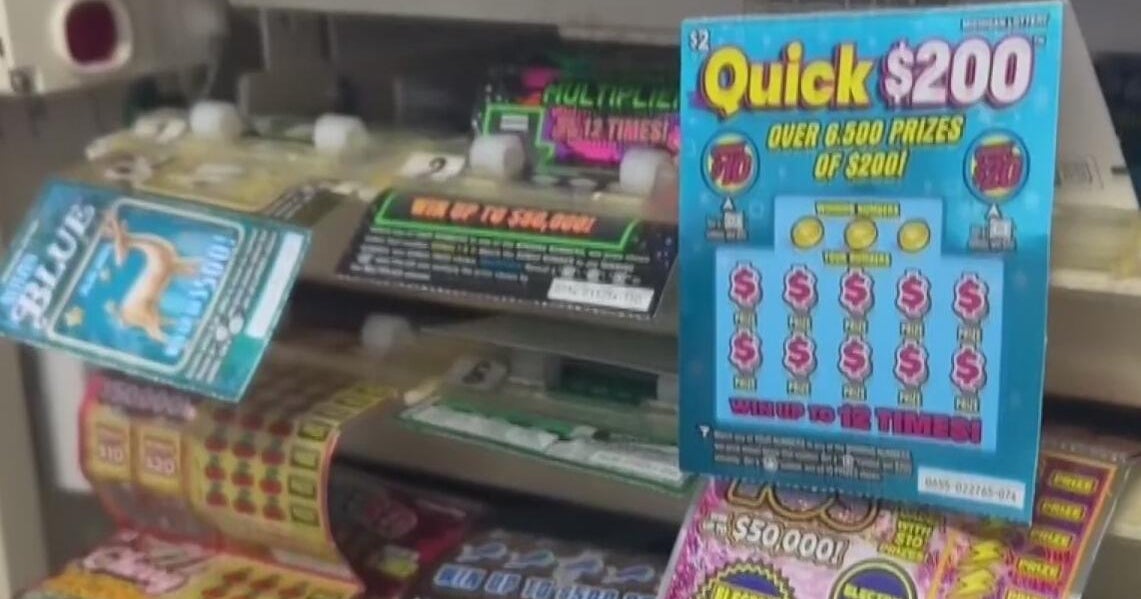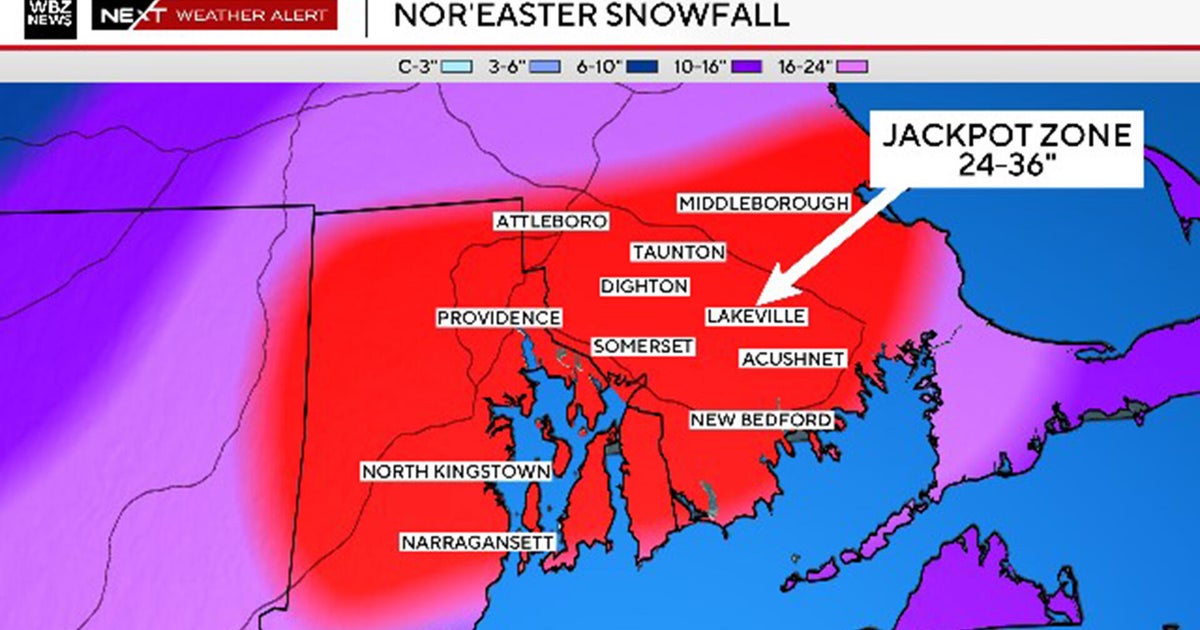Tuesday's Mega Millions Drawing Nears Record Jackpot
DETROIT (WWJ/AP) - The Mega Millions lottery has grown into the mega, mega huge.
The jackpot on Monday soared to $586 million amid a frenzy of ticket purchases, raising the possibility that the prize could pass the once-unthinkable $1 billion mark by Christmas Eve should nobody win before then.
Paula Otto, lead director for Mega Millions, said ticket sales are ahead of projections for Tuesday's drawing, increasing the likelihood it could shatter the current record of $656 million, set in a March 2012 Mega Millions drawing.
The large Mega Millions prize is the product of a major game revamp in October that dramatically lowered the odds of winning the jackpot. If a winner isn't selected Tuesday night and it rolls over past the next drawing scheduled Friday night, Otto predicts the jackpot will reach $1 billion — an unheard of amount for Mega Millions or Powerball, the nation's two main lottery games.
"We had predicted last week that if we are still on the same roll on Christmas Eve, we'll definitely be over a billion," she said.
Scott Norris, a mathematician from Southern Methodist University, said he estimates around 700 million more tickets must be sold without producing a winner for the jackpot to reach $1 billion on this run. He puts the odds of that around 6 percent.
Otto said it's likely the jackpot will be increased again after lottery officials meet Tuesday morning to discuss sales. Between 65 and 70 percent of the roughly 259 million possible number combinations will be in play when the numbers are drawn, Otto estimated.
"Lotto players are procrastinators. They tend to buy on the day of the draw," she said.
People can purchase Mega Millions tickets until 10:45 p.m. The drawing takes place at 11 p.m.
It's the ultimate fantasy: Walk into a store, plunk down a dollar, and with nothing but luck — really extraordinary luck — you win a giant lottery. Suddenly, you're rich as a sultan with enough money to buy an NBA team or your own island.
The odds of that happening, of course, are astronomical. So what drives people to play, and what makes them think their $1 investment— among the many, many millions — will bring staggering wealth?
"It's the same question as to why do people gamble," said Stephen Goldbart, author of "Affluence Intelligence" and co-director of the Money, Meaning & Choices Institute in California. "It's a desire to improve your life in a way that's driven by fantasy. ... The bigger the fantasy, the tastier it gets."
In a piece called "Lottery-itis!," Goldbart and co-author Joan DiFuria wrote on their blog last year on the Psychology Today website that in times of economic stress, playing the lottery is a way of coping with financial anxieties and uncertainty.
"We may seek a magic pill to make us feel better," they wrote. "Ah yes, buy a lottery ticket. Feel again like you did when you were a child, having hope that a better day will come, that some big thing will happen that will make everything right, set the course on track. "
The incredibly remote odds don't really sink in for people, says George Loewenstein, a professor of economics and psychology at Carnegie Mellon University who has researched the motives underlying lottery ticket purchases.
"People don't really understand probabilities at all," he says. "Once you have a bunch of zeroes, it doesn't matter how many you have — one in 10,000, one in a million or one in a billion. ... People do understand the meaning of the word 'largest.' They overact to one dimension and underreact to the other."
They also cling to a more romantic notion: Amazing things happen to others, so why not for me?
"When people are desperately sick, there's always a part of the brain that thinks there will be a miracle cure," Loewenstein says. "If you want something to be true, your brain is awfully good at figuring out reasons, magical ones, that there's a good likelihood that it is true. The desire to win does drive a certain kind of frenzied optimism."
That frenzy can grow during the holiday season, when financial hardships become more glaring and people feel pressure to spend money they don't have to demonstrate their love. "If you have plenty of money in the bank, you're not likely to feel the need to buy a lottery ticket," Goldbart explains. "But if there's something missing financially and emotionally and you're thinking, 'I can't get a raise or I'm not likely to get another job,' you buy a ticket as a psychological compensation plan."
The staggering size of the Mega Millions jackpot also makes this lottery special, attracting people who want to participate in a social, news-making event, says Jane Risen, an associate professor of behavioral science at the University of Chicago's Booth School of Business.
"The lottery happens every day," she says, "but for some people it has to reach almost a cultural threshold before it becomes the thing to think about."
What develops, she says, is a feeling of "anticipated regret." In short, people worry about not playing.
"It's some version of "What's the harm? I wouldn't want to be the idiot who didn't play the Mega Millions. What if I was the winner?'" Risen says. "It's a better safe-than-sorry philosophy: 'I'd better buy a lottery ticket just in case I was going to the winner.'"
TM and © Copyright 2013 CBS Radio Inc. and its relevant subsidiaries. CBS RADIO and EYE Logo TM and Copyright 2013 CBS Broadcasting Inc. Used under license. All Rights Reserved. This material may not be published, broadcast, rewritten, or redistributed. The Associated Press contributed to this report.
